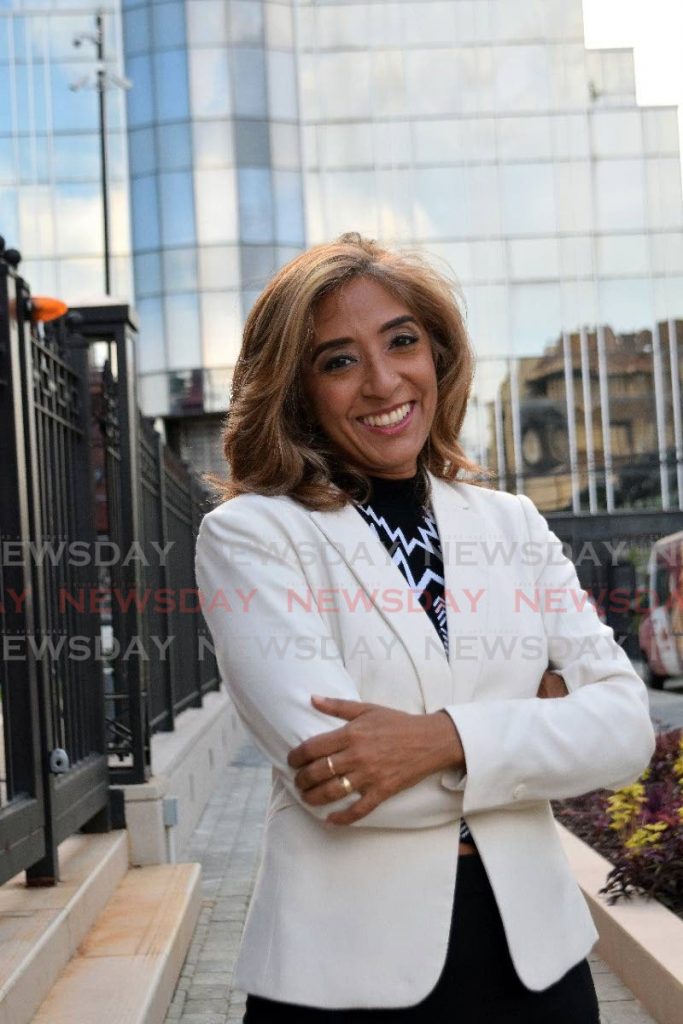Mothering is my choice

DR GABRIELLE JAMELA HOSEIN
FOR THE past five years, I headed the Institute for Gender and Development Studies (IGDS) on the St Augustine Campus of UWI, a department I first joined as a graduate student in 1997.
Although there was a year still to go, covid19 stepped in, making me shift priorities as a working mother or, as this column is named, a mothering worker. Putting it this way recognises mothering as a daily practice of ongoing labour and choices, and highlights the responsibilities that so many women actively juggle along with their working lives.
As feminists, we speak about the impact of covid19 on women’s livelihood and careers all the time. We note that the publications of women in academia fell more than those of men. We report the pandemic trend of women stepping down from leadership roles. We publicise the data which shows that, even though men in families are performing more care, women are carrying an ever more unequal burden, with implications for their income and independence, and mental and emotional health.
We talk about the care economy as the only one that never shut down, but which had to hold our society together all these months, managing its stresses with love and sometimes on a shoestring.
Schools closing in March 2020 required a huge shift. Children, particularly primary-school age, couldn’t simply sit by themselves in a room, focusing for hours on their teacher through a screen. It took time to sort out Wi-Fi drops and other technical difficulties. They needed checking on throughout the day. At breaks and lunch time, who else would they talk to if not you?
The pace with which one could function at a job, without having to be emotionally present for family, was simply not possible.
At first, I worked like a machine to adapt both IGDS and myself to our new circumstances.
Later I began to think that bringing those modes of work from the public sphere into the private sphere of family failed to protect how we should be at home with each other, and in fact another pace had to be found.
School closures made Zi present throughout the day, giving me an opportunity to be with her that I would never have had, imagined possible, made time for or even understood as necessary. Now that we were not rushing to and from school and work, to lessons and through homework, and to a bath and bed, I saw her much more, observed her emotional needs in a way that the pandemic forced parents to notice, and tinkered with how I mothered so that I could spend more time at lunch or on evenings or even between meetings in the day.
I could talk about the increased demands of housework and childcare, but I’m more grateful for what became precious time together, which I think made her happier and more centred, more responsible and aware, and able to slow down and reflect on growing up.
Working from home also changed me. With Zi writing SEA next year, I don’t think I would have understood her emotional needs in the way I made time to understand as we were together all this time, in the context of online schooling and a looming high-stakes exam that terrifies children.
I realised I should lower my own work hours and stress to better be there, knowing that getting children through the pandemic with their mental health intact takes conscious effort and choices.
In deciding to step down from leadership, I asked myself, what career could be more of a priority?
Over these years, a young generation of feminist women and men who are the new voices of social-justice organising emerged. There’s the Jason Jones case and LBGTI youth unafraid of calling publicly for their freedom and equality. There are men echoing a language of transforming masculinities more than ever before, as we saw after the killings of Ashanti Riley and Andrea Bharatt.
Women’s organisations collaborated to secure historic amendments to marriage laws, sexual offences and domestic violence legislation. Our post-pandemic survival together is our present challenge, remembering that gender always matters in recovery and holding our male-dominated governments accountable to an inclusive and equal nation.
The IGDS exemplifies the radical political intellectuals who have always defined our region. For a time, it was a privilege to lead its work and vision.
Now I’m choosing mothering over the upcoming school year amidst covid19. Families who have been through this know why one makes these decisions.
Diary of a mothering worker
Entry 429
motheringworker@gmail.com



Comments
"Mothering is my choice"